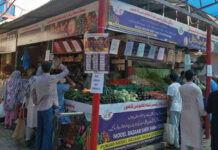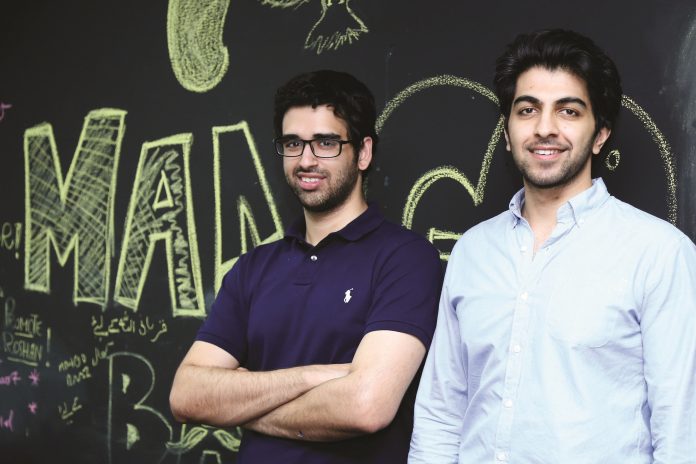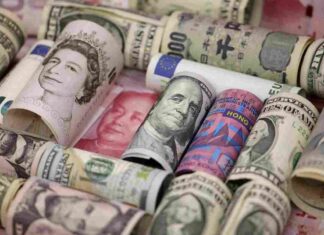In November 2014, two youngsters based in San Francisco decided to quit their startup jobs and return to their homeland to start a company of their own. Ali Ahsan and Ali Gul teamed up to turn their experimental website which they started in April 2015, into a full fledged digital media company with the vision “to tell a different story about Pakistan”.
MangoBaaz is an online digital media company that generates information and entertainment based content for Pakistani millennials. What started as an experimental website in April 2015 with a few thousand readers, turned into a business in August 2015 and now serves over a million users on a monthly basis.
“I worked for the sales department of a tech company but it was meaningless to me. There was no growth and I wanted to start my own business,” said Ali Gul.
Young Pakistanis crave meaningful entertainment
Gul and Ahsan said that they weren’t satisfied with the type of entertainment content being produced by the media in Pakistan since it failed to cater to the majority of the population: the youth. Teens and millennials make up over seventy percent of Pakistan’s population. The market, they believe, was ripe for disruption.
Gul opined that a dynamic shift is taking place in the audience today since they are more empowered to choose what they wish to see unlike the audience of the past who only had television or radio for entertainment.
“We don’t expect to break-even for another three to five years. And that’s because it’s not our priority to breakeven at the moment.”
Teething Problems:
Like most startups, Ahsan and Gul had to overcome obstacles in setting up their company and garnering support for it. Even family members were reluctant to allow them to risk their future in a business venture.
From the outset, they knew their team would be critical to the success of MangoBaaz. But scouting like-minded enthusiasts who were ready to commit to showing Pakistan in a different light came as a huge challenge. The co-founders had issues finding volunteers for work or people who could work without being paid.
Another major task was to explain the business model to people who thought it was merely a blog. Not far behind in the list of challenges was finding a conducive environment to work in.
The Business Model:
MangoBaaz essentially generates its revenue through native advertising which is a type of advertisement that is thoroughly connected to and interwoven with the platform that it appears on. It is a type of advertisement that matches the form and function of the platform upon which it appears.
They use a few banner ads by Google as well but those are meant primarily for data collecting to validate why native advertising is more effective than display; one metric they talk about is how native advertising has had a 100-200 per cent higher click-through rate (CTR) than traditional display ads.
Key performance indicators (KPIs) for MangoBaaz are traffic growth, video consumption, and revenue growth. Without giving too much detail, they mentioned that they’re currently having talks with like-minded investors who share their vision and expect digital marketing to grow exponentially.
It is a private limited company with only two shareholders at the moment; Ali Ahsan and Ali Gul. New investors will help the expansion strategy of the company while taking a share of the equity.
“Mango is the best fruit of Pakistan which is sold all over the world and is therefore supposed to symbolize the best of our country. ‘Baaz’, on the other hand is meant to convey the message ‘kay hum baaz nahi aatay’.”
“We don’t expect to break-even for another year or so and that’s because our biggest focus is audience growth and retention. We’re focusing on building a brand image for MangoBaaz as having engaging content,” said the co-founders.
“We’re looking to aggressively grow our video operations as we expect 80% of online content to be video based by 2020, if not sooner,” they added.
“Video also has a wider reach for us as we’re able to engage English and non-English speaking users, something which we’re unable to do with our written content,” Ali Ahsan remarked. Three major expense heads for MangoBaaz are its human resource, video production, and marketing.
MangoBaaz has their own production house and creates videos in which it embeds brands. They also use articles to advertise. A recent example is one of their episodes in which they advertised Sprite by linking it with fasting and doodh soda.
Native advertising is being used all over the world by leading brands and companies and is expected to be increasingly used in Pakistan as well. Notable partners of MangoBaaz in native advertisement are companies like Uber, Telenor, Coca-Cola, Nestle and Unilever among others. Other key partners also include Pakistan Today and other magazines for content sharing and distribution.
Strong Support System:
Currently, they have nearly 350,000 likes on their Facebook page and have graduated to PlanX, the accelerator. PlanX, an initiative of the Punjab Information Technology Board, empowers commercially viable early-stage tech start-ups by providing access to multiple funding channels, a specialized network of mentors and global exposure to establish high impact businesses.
“It has been a great experience for us to work with these people. They have helped us and encouraged us as much as they could. More initiatives to facilitate start-ups should be taken to cater the young generation of entrepreneurs in order to boost the economy,” the co-founders said while praising the initiative of the government.
Why ‘MangoBaaz’?:
When asked why they chose such an uncanny name for their company, Ahsan said, “Mango is the best fruit of Pakistan which is sold all over the world and is therefore supposed to symbolize the best of our country. ‘Baaz’, on the other hand, is meant to convey the message ‘kay hum baaz nahi aatay’.”























